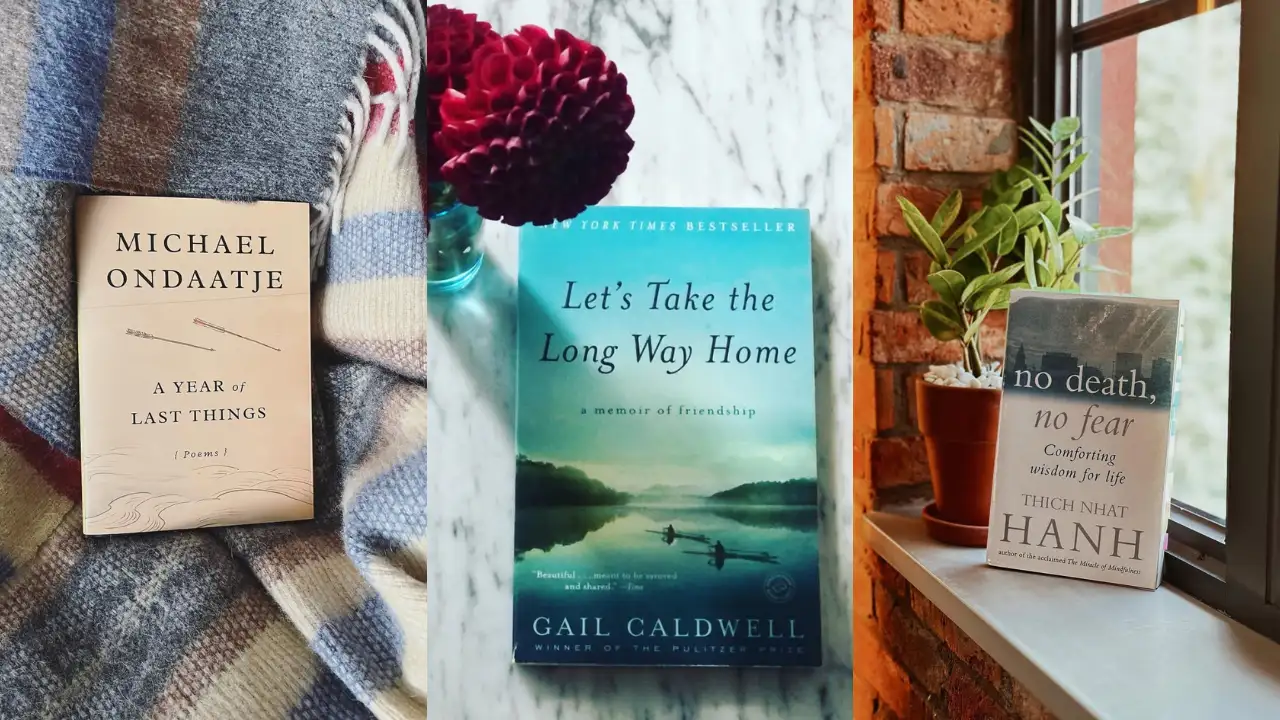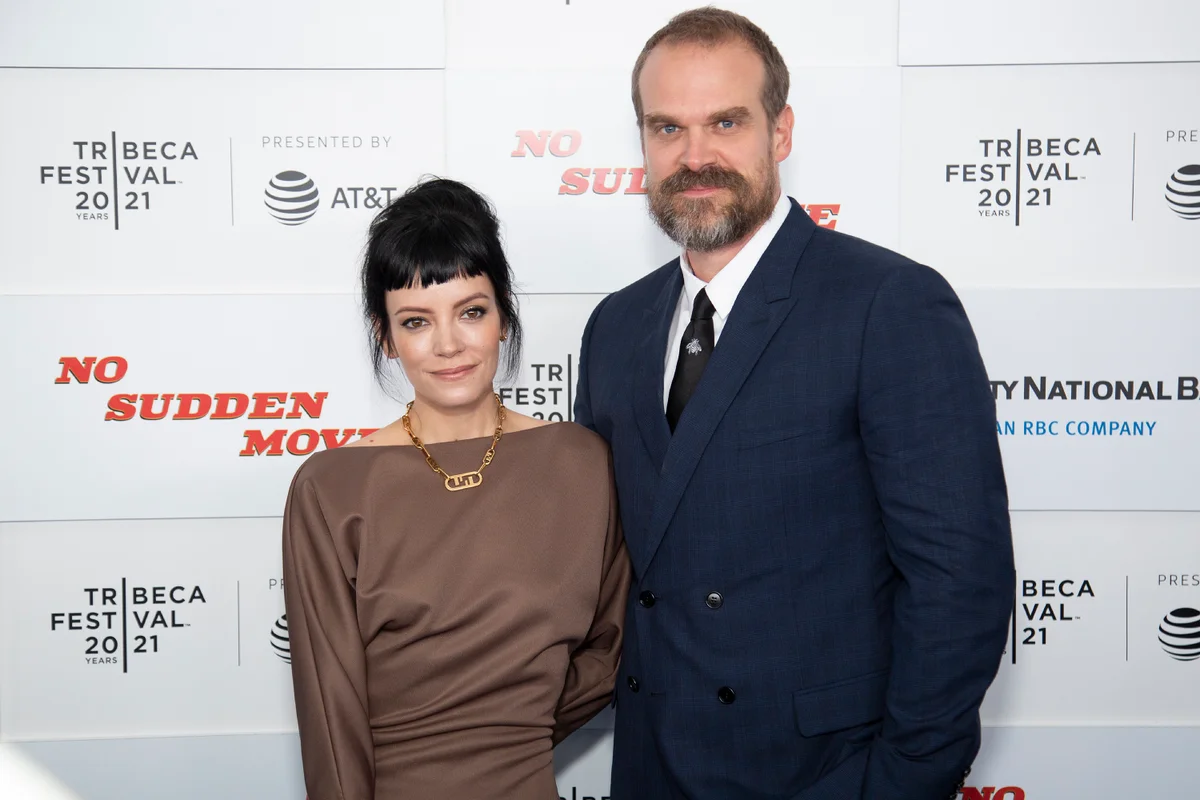Copyright timesnownews

Some books don't announce their power with dramatic moments or earth-shattering revelations. Instead, they work quietly, like water reshaping stone. These eight books slipped into my thoughts during ordinary moments, whispering questions I hadn't known to ask. They changed how I measure a life well-lived and what it means to leave something meaningful behind. Each one planted ideas that grew slowly, transforming my understanding of purpose, connection, and what truly matters when the noise fades away. Also Read: 8 Quiet Books That Speak Softly But Leave the Loudest Impact 1. The Wild Edge of Sorrow by Francis Weller A psychotherapist explores grief as an essential human experience that modern culture suppresses at great cost to individual and collective well-being. Francis Weller argues that modern society treats sorrow as a problem to fix quickly rather than a natural response to loss that needs space, ritual, and community. He identifies five gates of grief, including everything we love and will lose, places in our hearts that have not known love, the sorrows of the world, what we expected but did not receive, and ancestral grief passed through generations. Weller draws on indigenous wisdom traditions, depth psychology, and decades of guiding grief work to show how unexpressed sorrow shows up as depression, addiction, and disconnection. He emphasises that grief is communal rather than private, that we need witnesses to our pain, and that modern isolation makes suffering worse by making people grieve alone. 2. Mortality by Christopher Hitchens The writer and polemicist chronicles his experience with oesophageal cancer through essays written during treatment until he became too ill to continue. Christopher Hitchens writes with his usual wit and unflinching honesty about chemotherapy's harshness, the dullness of illness, and the strange experience of becoming a patient when you have spent your life as an observer and critic. He examines the clichés surrounding illness, including metaphors of battle and bravery, questioning whether there is anything redeeming about suffering or whether it simply degrades without teaching anything. Hitchens reflects on approaching death without religious comfort, keeping his atheism while facing the reality that soon he will completely cease to exist. He writes about losing his voice, the cruelty of a writer losing the ability to speak, and the isolation that serious illness creates. The essays address other people's discomfort with his condition, the false cheer and platitudes offered by well-meaning strangers, and his determination to keep working while he still can. 3. No Death, No Fear by Thich Nhat Hanh A Buddhist monk and teacher explains how understanding the nature of reality can remove fear of death and change how we live. Thich Nhat Hanh argues that birth and death are concepts we place on constant transformation, that nothing is truly born or dies but only changes form. He uses examples from nature, explaining how clouds do not die but become rain, how waves are not separate from the ocean, and how our bodies contain elements that existed long before us and will continue after. The book introduces ideas of interbeing and impermanence, showing that we are not separate selves but processes connected with everything, making death not an end but a continuation in different forms. Thich Nhat Hanh addresses the fear that we will become nothing after death, suggesting that since we were never a separate solid thing, there is nothing to disappear. He offers meditation practices for thinking about impermanence and breathing with awareness of death to reduce its terror. 4. The Year of Last Things by Michael Ondaatje A collection of poems reflects on ageing, loss, and the accumulation of endings that mark later life when friends die, abilities fade, and awareness grows that time is limited. Michael Ondaatje writes with simple, luminous language about his mother's death, the deaths of friends and fellow writers, and the strange experience of being among the last of his generation. The poems capture small moments full of awareness of impermanence, attention to beauty intensified by knowing it will not last, and the texture of memory as it becomes more precious. Ondaatje explores how ageing changes our relationship to the body, to work, and to memory itself as it becomes unreliable. He writes about the urge to record what is disappearing, the duty to remember those who are gone, and the particular grief of losing people who shared your history and validated your memories. The collection moves between personal loss and larger reflections on time, change, and what remains after people disappear. 5. The Book of Eels by Patrik Svensson A Swedish writer mixes the natural history of the mysterious European eel with a memoir about fishing for eels with his father and coping with his father's decline from dementia. Patrik Svensson explains how eels remain mysterious despite centuries of study, how their life cycle involves change and migration from the Sargasso Sea to European rivers and back, and how much about their reproduction and navigation is still unknown. He describes fishing with his father in Swedish rivers, the quiet companionship of those trips, and how eels became a thread connecting them across silences and differences. As his father loses memory and self to Alzheimer's, Svensson reflects on consciousness, identity, and what remains when memory disappears. He explores the eel's life cycle, its transformations from larva to glass eel to yellow eel to silver eel before its final migration to spawn and die, which parallels human change and mortality. 6. The Still Point of the Turning World by Emily Rapp Black A writer tells the story of raising her son, Ronan, who has Tay-Sachs disease, a degenerative condition that will kill him before age three, exploring what parenting means without a future. Emily Rapp Black writes about learning her son will only lose abilities, about fierce mothers who face reality rather than being sentimental, and about rejecting stories that make children's deaths meaningful or part of a divine plan. She describes Ronan's personality, their adventures together, and her determination to give him joy without pretending they have more time. The memoir looks at how having a dying child removes everything nonessential, how it clarifies what really matters when tomorrow is not guaranteed, and how platitudes about life’s fairness are cruel. Rapp Black refuses to find silver linings or suggest her son's death taught her lessons, instead celebrating the love they shared. 7. Let's Take the Long Way Home by Gail Caldwell A memoir tells the story of a deep friendship between two writers who met in midlife, their shared struggles with alcoholism and loss, and how one survives the other's death from cancer. Gail Caldwell describes meeting Caroline Knapp, the immediate connection between them, and how their friendship became central to both lives as they walked their dogs, talked about writing and recovery, and watched each other try to build sustainable lives. She writes about the special intimacy of female friendship at its best, how it differs from romantic love, and how finding someone who truly sees you changes everything. When Caroline is diagnosed with lung cancer, Caldwell describes watching her illness progress, the helplessness of seeing someone you love die, and the specific grief of losing someone who was your witness and mirror. The memoir explores what remains after someone dies, how their influence continues shaping you, and how surviving means carrying forward what they gave you. Also Read: 8 Short Books with Long Echoes That Linger for Days 8. To Bless the Space Between Us by John O'Donohue An Irish poet and philosopher offers blessings for life's transitions, thresholds, and the spaces between what was and what will be. John O'Donohue draws on Celtic spirituality and his training as a priest to write blessings for events including birth, marriage, work, illness, loss, and death, as well as for smaller changes like starting something new or leaving something behind. His language is lyrical and respectful without being traditionally religious, honouring mystery and beauty in human experience. The blessings acknowledge difficulty and suffering instead of denying them, asking not for an easy passage but for presence and grace during challenges. O'Donohue writes about thresholds as sacred moments when we stand between identities or situations, when ordinary time pauses and change becomes possible. He explores how modern culture rushes through transitions without noticing them, creating confusion and preventing change from settling in. These books didn't just fill my shelves. They became companions in rethinking what living fully actually means. Looking back, I realise they answered questions I was afraid to voice: What deserves my attention? What legacy really matters? The most profound shifts happened in silence, in small moments when their wisdom surfaced unexpectedly. If you're searching for books that don't just entertain but gently challenge how you see your place in the world, these eight might just rewire something essential within you, too.



